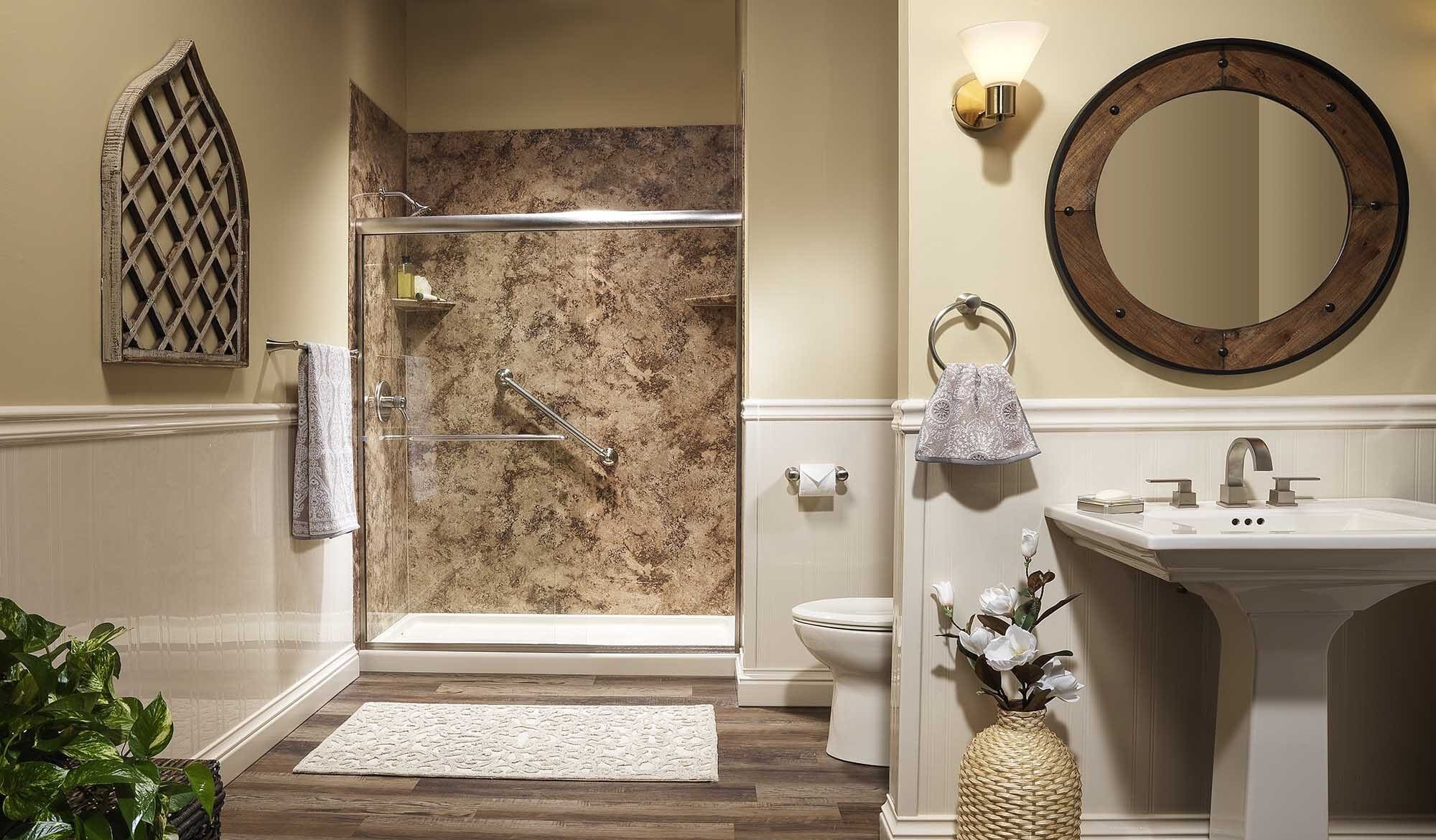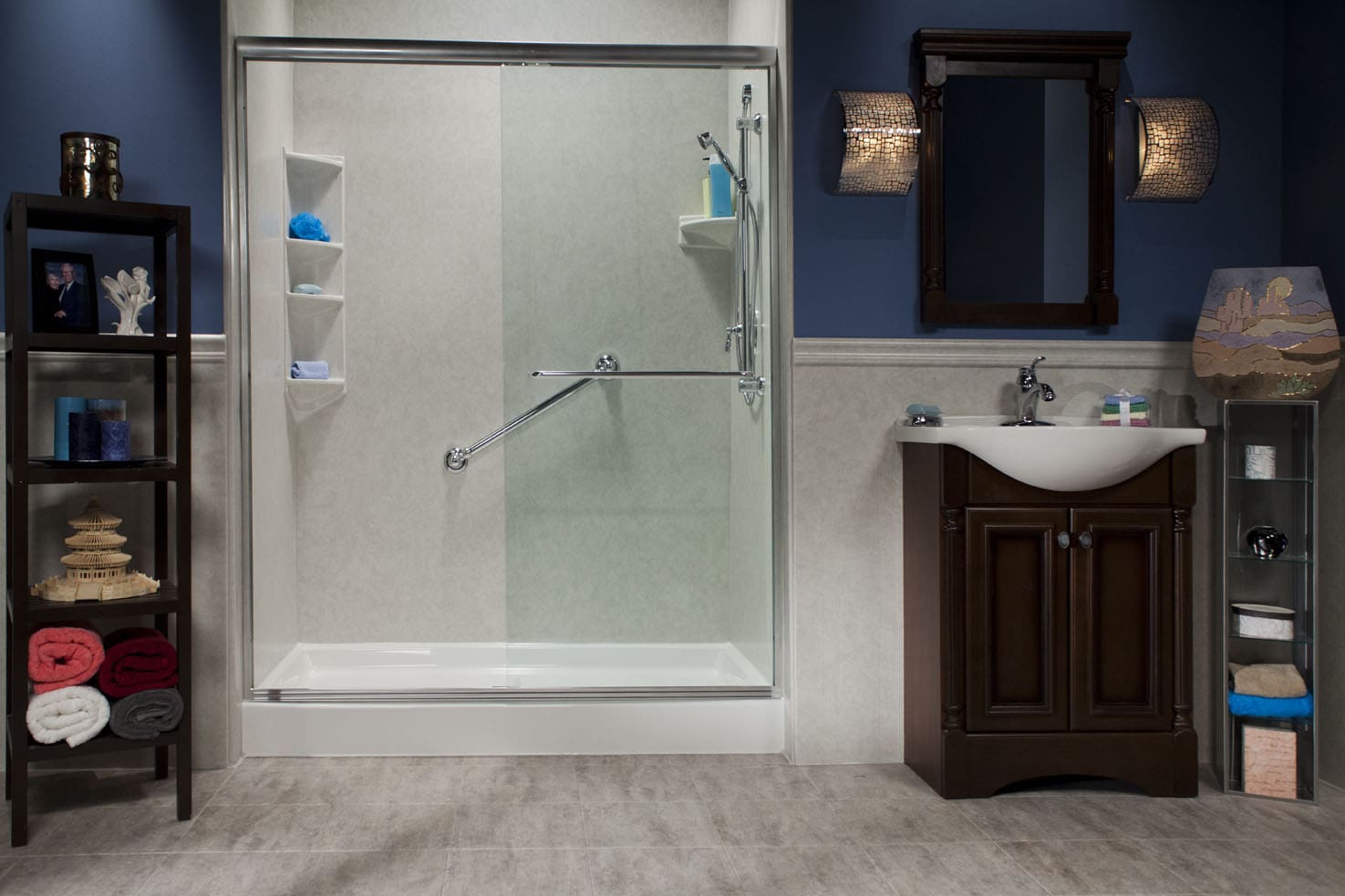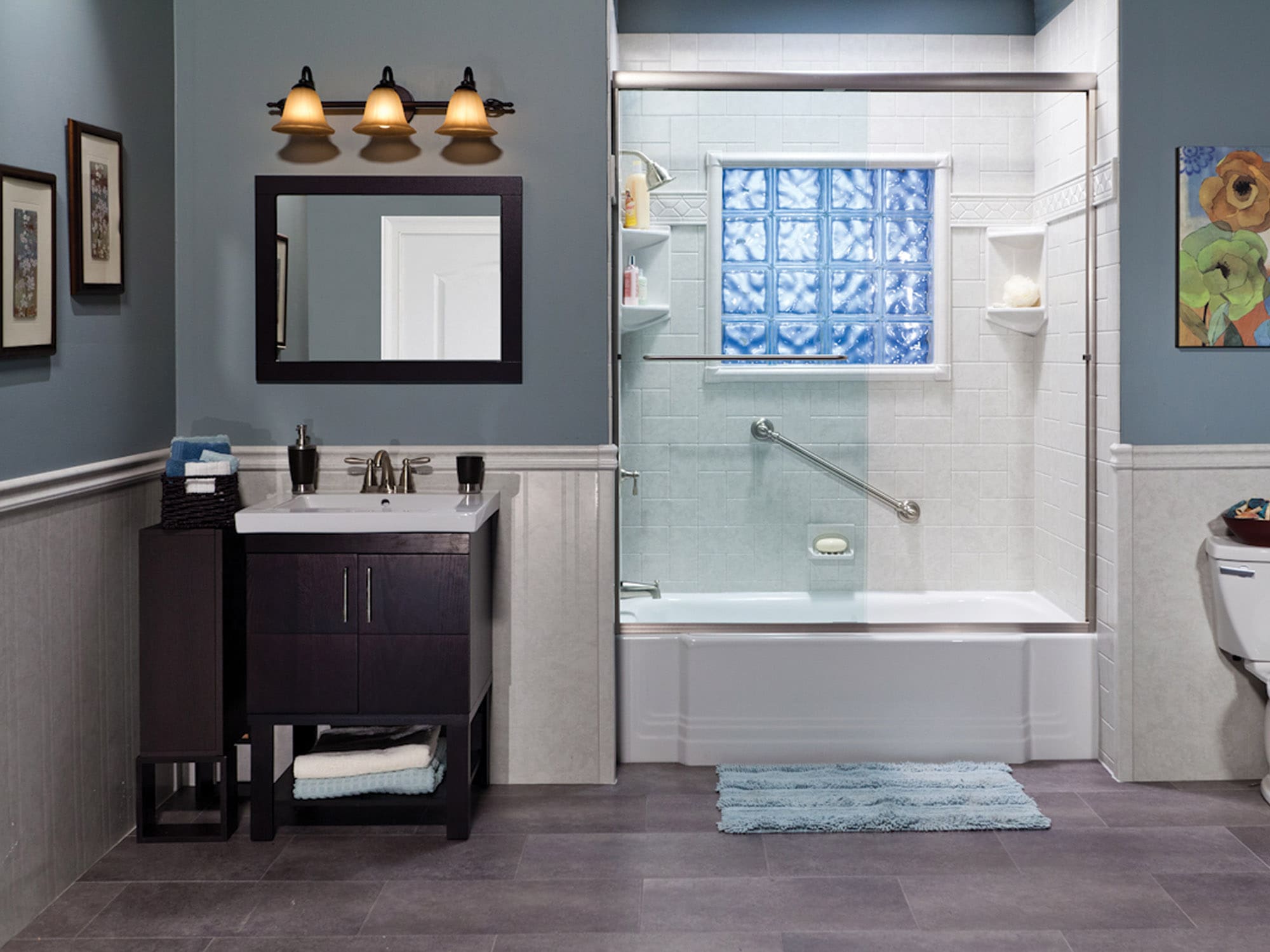A tub-to-shower conversion is one of the most popular bathroom remodels, and for good reason. Swapping a bulky, underused tub for a spacious, modern shower can dramatically improve your bathroom’s functionality, accessibility, and style. But while it might seem like a straightforward project, several common pitfalls can turn your dream renovation into a costly headache.
To ensure your project goes smoothly, it’s essential to plan carefully and understand what can go wrong. As a leading Worcester, MA, bathroom contractor, we’ve seen it all. We know the common missteps homeowners make and how to prevent them from happening in the first place.
This guide will walk you through the most frequent mistakes made during a tub to shower conversion in MA. By learning what to watch out for, you can make informed decisions, avoid unexpected expenses, and create a beautiful, functional shower that you’ll love for years to come.
Key Takeaways
- Plan Thoroughly: Proper planning, including accurate measurements and a detailed budget, is crucial to prevent costly errors and delays in your tub-to-shower conversion.
- Prioritize Plumbing and Waterproofing: Overlooking plumbing codes, using incorrect materials, and failing to properly waterproof the shower area can lead to significant water damage and expensive future repairs.
- Hire a Professional: While DIY can be tempting, a tub-to-shower conversion involves complex plumbing and construction tasks. Hiring an experienced Worcester, MA, bathroom contractor ensures the job is done right.
Choosing the Wrong Shower Base
The foundation of your new shower is the shower base, or pan. Selecting the wrong one is a mistake that can have long-term consequences. Homeowners often choose a base based on looks or price alone, without considering its material, size, or installation requirements.
Size and Fit
An incorrectly sized shower base is a common issue. If the base is too small, you’ll have awkward gaps between the pan and the walls. If it’s too big, it simply won’t fit into the alcove where your tub used to be. Precise measurements of the existing space are non-negotiable. Remember to measure not just the length and width, but also the location of your drain. An off-center drain will require costly plumbing adjustments.
Material Matters
Shower bases come in various materials, each with its own pros and cons:
- Acrylic and Fiberglass: These are lightweight, affordable, and relatively easy to install. However, they can feel less sturdy underfoot and may be prone to scratching or cracking over time.
- Composite/Solid Surface: Materials like cultured marble or solid surface offer more durability and a higher-end feel. They are non-porous, making them resistant to mold and mildew.
- Tile: A custom-tiled shower floor offers endless design possibilities but requires expert installation to ensure it’s properly sloped and waterproofed. An improperly built tile pan is a primary cause of shower leaks.
Overlooking Plumbing and Drainage
A tub-to-shower conversion involves more than just swapping fixtures. The plumbing is one of the most critical components of the project. A standard bathtub drain is typically 1.5 inches in diameter, while most building codes require a 2-inch drain for a standalone shower. Failing to upgrade the drainpipe is a significant oversight that can lead to slow drainage, clogs, and potential water overflow.
Furthermore, the placement of the shower valve and head needs careful consideration. You’ll want them at a comfortable height that works for everyone in your household. It’s much easier and cheaper to get this right during the initial plumbing phase than to adjust it after the walls are tiled.
Inadequate Waterproofing
Water is persistent. If it finds a way out, it will cause damage. One of the most disastrous mistakes you can make is failing to waterproof your new shower enclosure correctly. This isn’t just about using water-resistant materials; it’s about creating a completely sealed system that directs every drop of water toward the drain.
Effective waterproofing involves several layers of protection:
- Vapor Barrier: A waterproof membrane must be installed behind the backer board on the shower walls.
- Sealed Seams: All seams, corners, and screw holes in the backer board must be sealed with waterproof tape and thin-set mortar.
- Waterproof Pan Liner: For tiled floors, a pan liner is installed over a sloped mortar bed to create a watertight basin.
Skipping any of these steps can lead to hidden leaks, which can cause mold growth, rot the wooden structure of your home, and result in thousands of dollars in repairs. This is an area where cutting corners will almost certainly cost you more in the long run.
Poor Ventilation
With every shower, a large amount of steam and moisture is released into your bathroom. Without proper ventilation, this humid air gets trapped, creating the perfect environment for mold and mildew to thrive. It can also cause paint to peel and damage drywall and wood fixtures over time.
Many older bathrooms, especially those with only a tub, may have inadequate ventilation fans or none at all. When performing a tub-to-shower conversion in MA, upgrading your bathroom’s ventilation is not just a good idea—it’s essential. Ensure you install a high-quality exhaust fan that is properly sized for your bathroom’s square footage and vented directly to the outside, not into the attic.
DIY vs. Hiring a Professional Worcester, MA, Bathroom Contractor
The allure of a DIY project can be strong. It promises cost savings and the satisfaction of a job done with your own two hands. However, a tub-to-shower conversion is a complex project that combines plumbing, tiling, and construction skills.
Mistakes in any of these areas can be costly and difficult to fix. An improperly installed drain can lead to leaks, a poorly tiled wall can ruin the aesthetic, and inadequate waterproofing can cause catastrophic damage. While some homeowners have the skills to tackle this project, most do not.
Hiring a professional bathroom contractor in Worcester, MA, like Inaugural Home Improvement, provides peace of mind. A licensed and insured professional will:
- Understand local building codes and permit requirements.
- Have the right tools and expertise for the job.
- Provide a warranty for their workmanship.
- Complete the project efficiently, minimizing disruption to your home.
Your Path to a Perfect Shower
A tub-to-shower conversion can be a fantastic upgrade for your home, adding value, style, and practicality. By avoiding these common mistakes, you can ensure your investment pays off. Prioritize careful planning, use high-quality materials, and don’t underestimate the importance of proper plumbing and waterproofing.
If you’re considering a tub-to-shower conversion in MA and want to ensure it’s done right, contact Inaugural Home Improvement. Our experienced team can guide you through every step of the process, from design to completion, creating a beautiful and durable shower you’ll enjoy for years to come.






